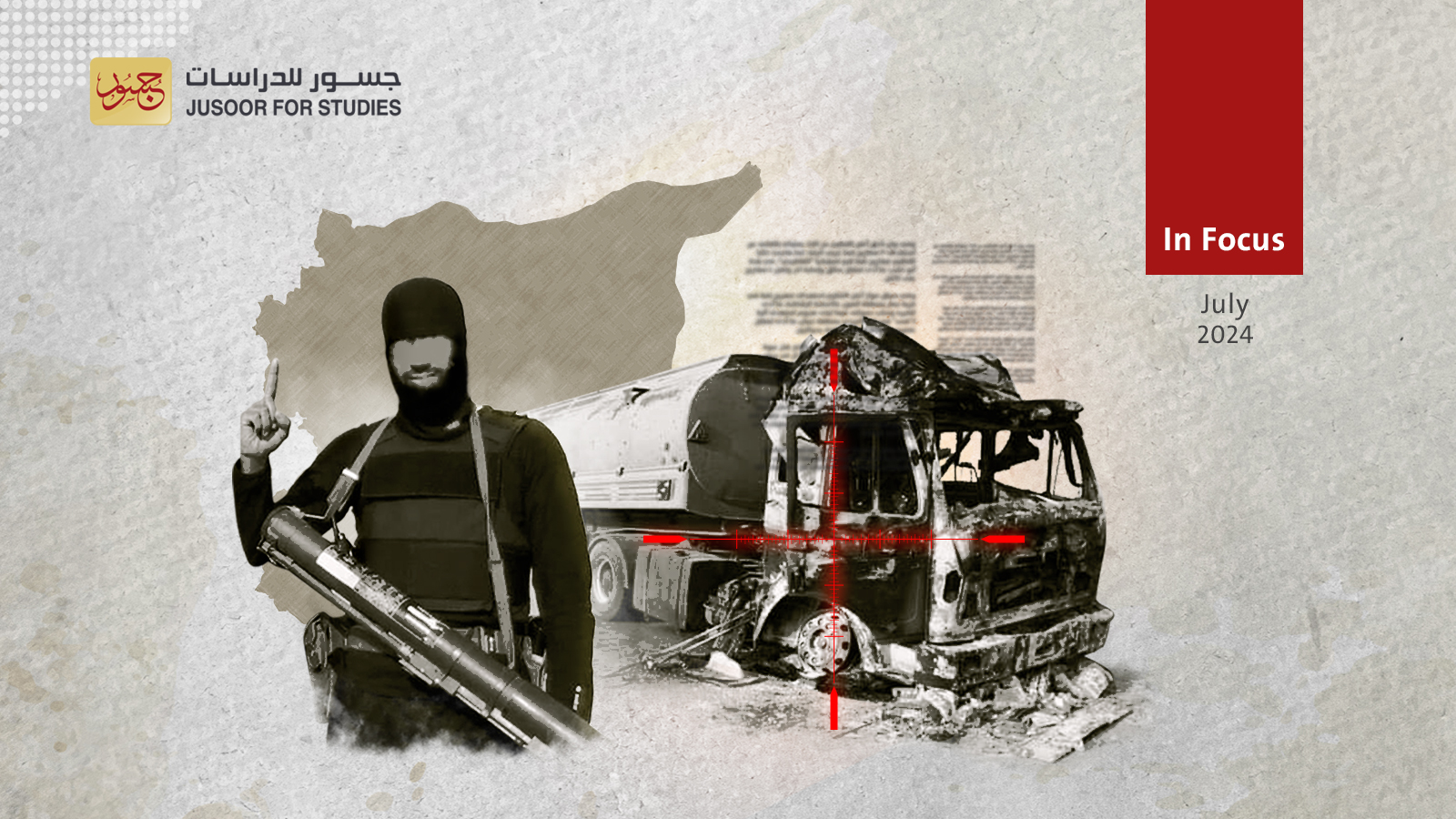Tanker Wars: IS Targets Oil Supplies in Syria
Since the beginning of 2024, the Islamic State group has carried out 33 attacks against oil tankers in eastern Syria, including 24 against the Syrian Democratic Forces (SDF) and nine against the Al-Qaterji forces, a unit the Syrian regime’s National Defense Forces tasked with transporting oil from SDF-held areas to parts of the country controlled by the regime.
The jihadist group’s attacks on its enemies’ fuel transport operations are nothing new, but they dramatically increased in June and July, which saw at least 22 attacks, as compared to just 11 between the start of the year and the end of May.
The attacks also targeted a greater variety of locations, but particularly focused on SDF tankers in eastern and northern Deir Ezzor, and on Al-Qaterji vehicles in the northwest of the province, especially around the towns of Abu Khashab and Al-Tabni. IS fighters carried out the attacks with machine guns rather than roadside bombings, reflecting their choice of rugged areas close to the usual routes taken by tankers, where it is hard for SDF and regime forces to protect them.
These ambushes have allowed IS to place the oil supply of both the SDF and the regime under constant threat. They have also allowed the group to set up protection rackets, demanding money in exchange for refraining from targeting convoys for set periods of time.
IS has also started claiming responsibility for ambushes against oil tankers and arson attacks on oil wells, operations it used to avoid claiming so it could deny that it was extorting money from such facilities’ owners.
In July, it claimed several prominent operations, including a string of attacks on consecutive days against oil tankers in the villages of Abriha in eastern Deir Ezzor, Al-Daman in the north of the province, and Al-Salhabiya, south of Raqqa. The attacks it claimed followed an “unofficial” weeks-long campaign against SDF and regime oil convoys.
IS likely chose to announce these operations to confirm that it is adopting a strategy of economic pressure against the regime and the SDF in order to force its adversaries into a choice: either launch a string of anti-IS operations that would allow the jihadists to wage a campaign of attrition in response, or pay protection money to the organization, thus guaranteeing it a constant inflow of cash.
The jihadists are therefore likely to maintain or escalate their attacks on oil tankers in eastern Syria, in order to pressure merchants involved in the oil trade in SDF-held areas into a financial settlement with IS that would see it ease off its attacks.
In summary, IS appears to applying economic pressure on both the SDF and pro-regime Iranian militias to force them to pay it large sums of protection money. This also exploits the fact that both are facing escalating military pressures from other sources: Türkiye’s campaign against the Kurdistan Workers’ Party (PKK) in northern Syria, and Israeli strikes against Iranian militias, respectively. It is notable that in June, Israel assassinated Bara Qaterji, a prominent pro-regime businessman whose family acted as a key go-between for oil transfers between the SDF and the regime.








